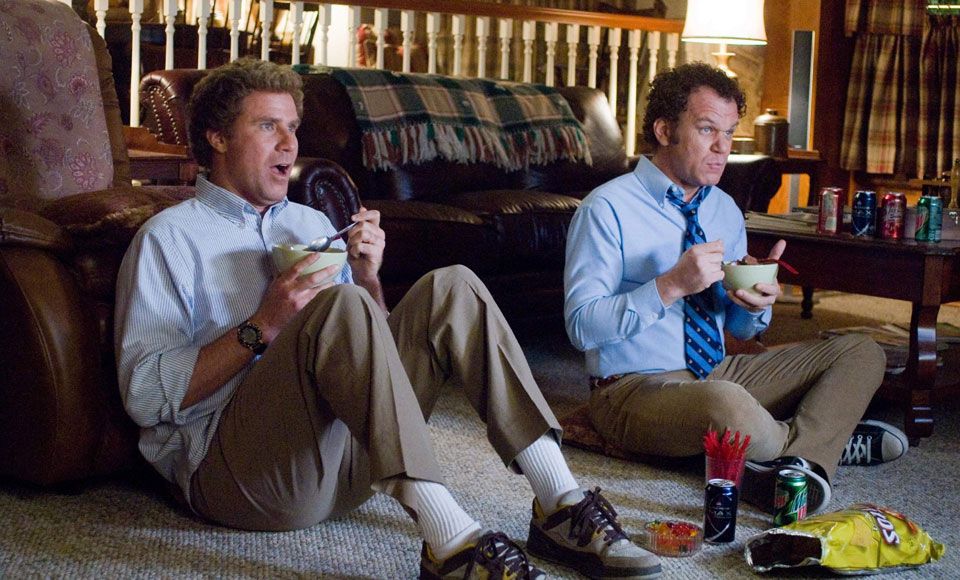Ah the frivolous twenties. A time of (mis)adventure, experimentation and discovery for every young man. The last thing any twenty-something year-old is worried about during this time? Financial goals.
This dull but often important aspect of a man’s life should never be neglected. The general perception of a young man is that finance can be taken care of later in life since assets are low, graduation is fresh and a casual job is well within reach.
“Save first and then spend what’s left over, not the other way around”
It may be true to an extent, but gaining a real financial advantage in your twenties today can mean ending up with your own place by your thirties or renting on the cheap until you’re fifty.
To alleviate the confusion, we’ve put together some money management tips with the help of an expert to find out how to utilise your earnings during your twenties and what financial skills you’ll need to come out on top of the moolah pile. Easy money.
#1 A Crash Course In Finance

The first step to any sound financial preparation for a young man is gaining the knowledge himself. It’s often said that the hardest part is starting and this will no doubt put many off. Not you though because you’re a fiscally-sound magnificent bastard and fiscally-sound magnificent bastards know where to acquire the good stuff with minimal effort.
#2 What To Focus On In Twenties

Young men in their twenties are bombarded with information regarding property, shares, multiple income streams and much more. What is myth or truth is harder to decipher. Luke Laretive who is the Senior Private Wealth Advisor at Shaw and Partners says that the time in your twenties is your biggest asset, so use it wisely.
“You can take risks and still have time to recover if it all goes belly-up. Also, the earlier you get started with good money habits and a financial plan, the longer your money will be working for you.”
He explains that a young man’s biggest income producing asset is his ability and potential to earn money. More specifically the income you make on an annual basis is what you trade for your time and skill. As such, young people should invest in themselves and build these skills – either in a career or a side business – to try to maximise potential earnings.
“You have a lot more control of this than the stock market or property market,” explains Laretive.
“Whether to put surplus money into savings, shares or property will depend on the individual’s goals, risk tolerances and circumstances. All have pros and cons so it’s best to do some research or get advice from a professional. Don’t just follow the herd or rely on BBQ chat for your financial advice.”
#3 Bad Financial Habits To Avoid

Being in your twenties is all about earning the disposable income to purchase all those goodies you’ve always wanted: the new car, the flashy phone, the cool threads, a bloody hoverboard if you must. The list is endless. And now the bad news.
Do not spend every dollar that you earn. It’s a terrible financial habit to be living by the paycheck or by credit card as a lot of twenty-somethings often do. It’s also doing you a lot more damage in the longterm for just a short term fix of the ‘feel goods’.
Laretive warns against this bad and commonly avoidable habit and says that young men should get into the habit of putting money aside for saving and investing instead.
“Spending more than you earn, living a lifestyle that you can’t afford and racking up credit card debt to fund it is a big no-no.”
Additionally, not defining your financial goals is also a mistake often overlooked. In your twenties you need to address these factors:
- What kind of life do you want and how much money do you need to make it happen?
- What is important to you, what do you want to achieve and what are you willing to sacrifice to get it?
- You could take an overseas trip every year for 5 years, or have a significant chunk of a home deposit. There’s always a trade-off.
To be more proficient in this area, a bit of attention and active interest in your finances is all that’s required.
“Get familiar with your superannuation and every now and then, check your big expenses and see if you could be getting a better deal whether it’s a mortgage, insurance or phone plan.”
The notion of risk should also play into the monetary acumen of a young man. Risk often comes with a negative connotation but it’s also important to realise that getting rich can’t be done via conventional saving.
Laretive further adds that young people aren’t taking enough educated risks.
“You should always have some amount of savings in the bank but with inflation and low interest rates you are never going to get rich by saving alone. Be willing to evaluate risk and take chances.”
#4 How To Balance Lifestyle & Saving

By now you’re probably thinking it’s all doom and gloom when it comes to being financially responsible in your twenties. Not necessarily, if you play it smart.
“There’s always an opportunity cost when you spend money,” says Laretive.
“$500 into shares is $500 not spent on something fun. You choose how to allocate your resources so identify and prioritise what’s important to you and be deliberate in your spending.”
The easiest way to navigate the lifestyle-vs-saving landscape is to decide and set your goals earlier on and the then set up your finances so you don’t have to think about it.
Budgeting is a boring and depressing affair for everyone so the key is to find whatever works for you – an app, a family accountant, whatever – just make sure it’s as easy and simple as possible to manage.
Laretive explains that you can even set up different accounts for bills/rent/emergency fund/investing/saving and set up auto debits for pay day.
“Then only have your spending allowance available on your access card.”
“However you do it, save first and then spend what’s left over, not the other way around.”
#5 Rent Or Buy

Welcome to the million dollar question faced by many men in their twenties today who don’t have a trust fund to fall back on. The predicament is simple: ‘Be a man – move out, rent and be independent’ or ‘Be a man – stay at home with the parents, save up, buy your own place and call it your own’.
So which path is the right path for a young man?
“There’s a lot of pros and cons for both renting and owning,” says Laretive.
“Financially, you’re not necessarily better off if you buy a house, and ‘rent money is dead money’ isn’t really the full story either.”
“Like all decisions, it’s about opportunity cost and alternatives. Think about what suits you and your lifestyle. If location flexibility is important to you, then renting is great. If stability is important to you, then owning is great.”
Most importantly though, he says that one shouldn’t feel the need to own a house just because that’s what everyone else is doing.
“Investigate the alternatives and make an informed decision. If you want to buy a house and you are lucky enough to have the opportunity to live with your parents while you save a deposit it can really fast track your saving.”
The obvious trade off is that a young man in this situation will need to give up the freedom of living by themselves whilst their parents are also making a sacrifice by providing free accommodation.
Laretive says that if you are going to take advantage of this option then you should really commit to saving hard and getting that deposit together as soon as you can.
Special thanks to Luke Laretive who is a Senior Private Wealth Adviser @ Shaw and Partners. This is general advice and you should consider it in light of your personal circumstances.
